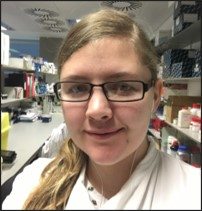Led by Christina Elliott .@Dr_CL_Elliott, Scott Turner .@scottturneruon and Sarah Honeychurch .@NomadWarMachine
How do you feel about undertaking a scholarship of learning and teaching (SoTL) project? Are you an experienced and confident SoTLer or do you struggle to get started? A recurring topic of conversation when those of us who work or study in education get together is the problems we all face when we try to do this thing called SoTL – it all feels so alien to us because it takes us out of our comfort zones. Yet when we step back and think about it, we should realise that we all have a multitude of skills that ought to be relevant. Whether your background is as a high-flying academic, an early career academic on a teaching track contract, a professional services/academic support role or a student, you will have a wealth of skills and experience learnt from your previous academic studies (whether undergraduate or postgraduate) and your working life. The challenge is to understand how you can harness all of this knowledge and use it to become a confident and successful SoTLer.
As the incoming organisational team we’d like to introduce ourselves by sharing with you our academic journeys so far and, particularly, our experiences of making the transition from discipline-based researchers to teaching and learning focussed academics and SoTL practitioners. We know that this is a topic that has been raised before – for example Kiu Sum facilitated a chat about SoTL from the point of view of the student and David Walker and Susan Smith facilitated a chat about how to demonstrate engagement with SoTL for career progression. This week we are hoping to build on these earlier chats and ask how we, as a community, can support each other whatever stage of career we are at. We are not pretending to be experts by any means, but what we would like to do is to ask a series of questions and see what answers we, the LTHEChat community, can come up with. We thought we’d start by telling you a little bit about our experiences so far.
Christina’s SoTL Story
As a newcomer to the learning, teaching, and scholarship track, I had quite the identity crisis when transitioning from discipline-specific research and understanding my role within a “research-intensive” University. Two years in I am still reflecting on what “scholarship” really means and how I can best use it to improve my teaching practice and student experience.
Coming from a scientific background the themes and methods seemed quite disparate from my previous experience and training. I often joke about having never written about “feelings” so much in a professional context before! However, I am inspired by the way we can use our own unique personal experiences to shape our ideas of scholarship and practice to champion causes that we feel most passionate about.
What excites me most about scholarship is the possibility to experiment and innovate. The dynamic nature of SoTL has enabled me to contribute to podcasts, resources, and game development to name a few. I have loved the diversity of projects and the collegiate spirit of the community.
Scott’s SoTL Story
I came to having SoTL as part of my research though, like many, I just wanted to improve the way I teach and more importantly improve the learning experience for my students – very much a work in progress. Main focus has been on developing student’s problem-solving and programming skills, and it has spun off into engagement with schools and many other things I have been fortunate to be involved in.
The challenge I struggle with is doing some discipline-based research as well as SoTL, both of which I enjoy. How to progress in a career when I enjoy doing both (and along with teaching itself)?
Sarah’s SoTL Story
I came to my current role in academic development by accident, as so many of us do – but now I am here I am very happy in my current role (which is actually a professional services contract, and not an academic one). Throughout my time in HE I’ve been researching and writing without really making a distinction between research or scholarship because I didn’t need to differentiate – and it is only over the last couple of years that I’ve really started to think about the differences between where I started and where I am now.
I think that there’s often a belief that academics with a background in Humanities find it easy to make the transition from subject-specific research to SoTL. Well, I can tell you that, at least for me, that was categorically not true. My original subject was Philosophy, and its practices are very different from those I’ve needed to develop as a SoTL practitioner.
One difference might surprise you – I have never written a lit review because philosophy doesn’t use them – and the thought of ever having to write one fills me with dread. My PhD in Education doesn’t even have one – it has a chapter called “writings that have inspired this thesis”, but as my supervisor will tell you it is nothing like a lit review. Luckily for me my lack of ability has never been a problem – I like to write collaboratively and (so far!) there’s always been someone who actually enjoys doing the lit review section. But I still feel that I am not a *proper* SoTL practitioner.
References
Antman, L., & Olsson, T. (2007). A Two-Dimensional Matrix Model for Analysing Scholarly Approaches to Teaching and Learning. https://www.semanticscholar.org/paper/A-Two-Dimensional-Matrix-Model-for-Analysing-to-and-Antman-Olsson/f55260f50b5608a9e54482dd656310d63a00215e
Heriot Watt Learning and Teaching Acacdemy: Scholarship of Teaching and Learning Resources https://lta.hw.ac.uk/resources/scholarship-of-teaching-and-learning/
Tierney, A. M., & Webb, A. S. (2020). Investigating Threshold Concepts in the Scholarship of Teaching and Learning, and the Influence of Disciplinary Background on the Research Process. In R. Land, & J. Timmermans (Eds.), Threshold Concepts on the Edge (Vol. 73, pp. 285-295). (Educational Futures; Vol. 73). Brill Academic Publishers. https://doi.org/10.1163/9789004419971_020 [behind paywall for me]
Trigwell, K., Martin, E., Benjamin, J., & Prosser, M. (2000) Scholarship of Teaching: A model, Higher Education Research & Development, 19:2, 155-168, DOI: 10.1080/072943600445628 https://doi-org.ezproxy.lib.gla.ac.uk/10.1080/072943600445628
Keith Trigwell: 2009 TLHE Invited Lecture 3: The Scholarship of Teaching and Learning, Research and Research https://www.youtube.com/watch?v=xImc3KnDS60&t=2s&ab_channel=NUScast
University of Edinburgh Institute for Academic Development. What is Scholarship of Teaching & Learning (SoTL)? https://www.ed.ac.uk/institute-academic-development/learning-teaching/staff/sotl/what-is-sotl
Join Us
The live tweet-chat will take place via https://twitter.com/LTHEchat on Wednesday 05 May 2022, 8:00 to 9:00 pm BST.
During this time 6 questions will be posed (one every 10 minutes) – everyone is welcome to contribute (as much or as little as they like) or just to read. Conversation is also welcomed at any time post 9:00pm BST.
Tweetchat Questions
Q1 What is your academic background? Tell us, or show us with an image or gif
Q2 What does Scholarship mean to you? Tell us, or show us with an image or gif
Q3 How confident are you in your Scholarship of Teaching and Learning (SoTL) abilities? Tell us, or show us with an image or gif
Q4 What do you think are the main barriers to undertaking Scholarship of Teaching and Learning (SoTL) (and how could these be overcome)?
Q5 What advice would you give to newcomers to Scholarship of Teaching and Learning (SoTL)?
Q6 How can we, as a community, support each other in our scholarly endeavours?
Wakelet
Here’s the link to the Wakelet of this week’s chat https://wke.lt/w/s/E-mMza
The Hosts’ Bios
Christina Elliott
I am a lecturer in Biomolecular Sciences at the University of Glasgow since August 2020 on the Learning, Teaching & Scholarship track. Although I am relatively new to all things SoTL, I have developed a keen interest in. gamification and game-based learning as well as promoting student engagement through active learning approaches. My current practice also includes working with student partners as content co-creators. I’m very much looking forward to supporting the LTHEchat! .@Dr_CL_Elliott
Scott Turner MIET, MBCS, MIEEE, MACM, FHEA, FRSA is Section Director for Computing at Canterbury Christ Church University. Scott has worked in education for over 20 years and has particular interests in problem-solving, teaching within Computing (see for more details https://bit.ly/ProblemSolvPub); along playing with Technology in general including robots, free AR and VR(e.g. https://bit.ly/3MkQOlc) and visualising social media (e.g. https://bit.ly/SocmedViz). He is a Fellow of the HEA; and proud to have been awarded Golden Tweeter Award in December 2018, and to be asked to be involved with #SocMedHE and the National Teaching Repository. .@scottturneruon
Sarah Honeychurch is a Good Practice Adviser at the University of Glasgow where she has worked in a variety of roles since 2001. She completed her PhD in participatory learning in 2021 and is grateful to the many online networks and communities, including LTHEChat, that supported and sustained her throughout her learning journey. She is an avid knitter and plays uke very badly (and, thankfully, only in the privacy of her own study). She and her husband Niall are owned by two tuxedo cats, Cagney and Lacey. .@NomadWarMachine









